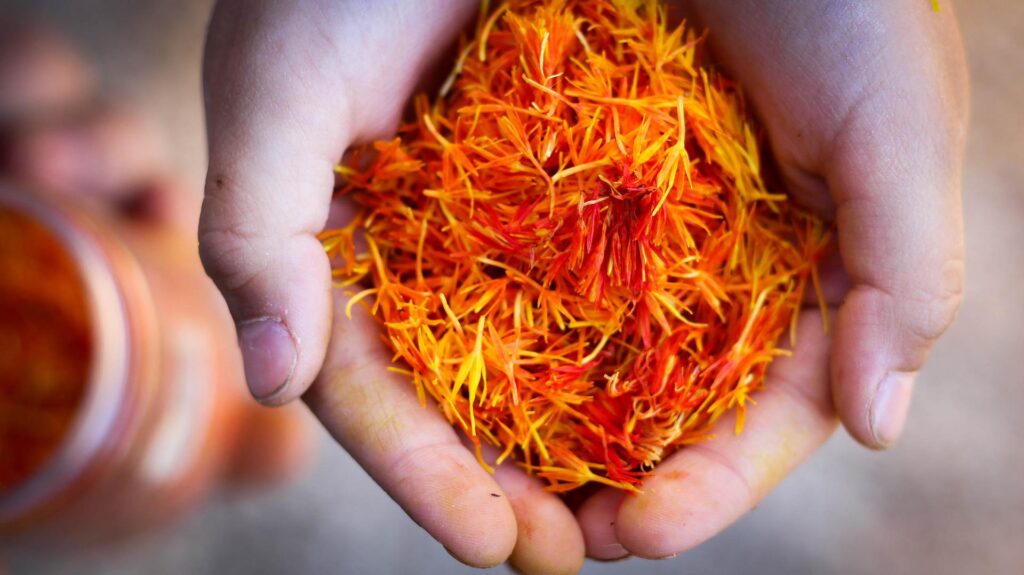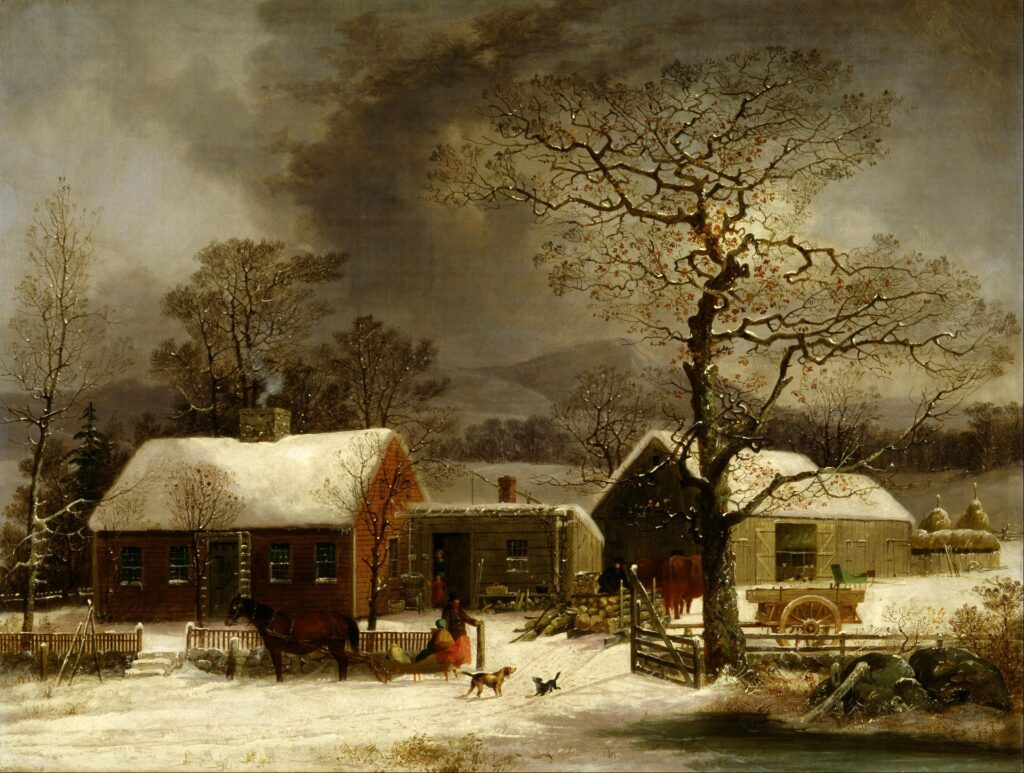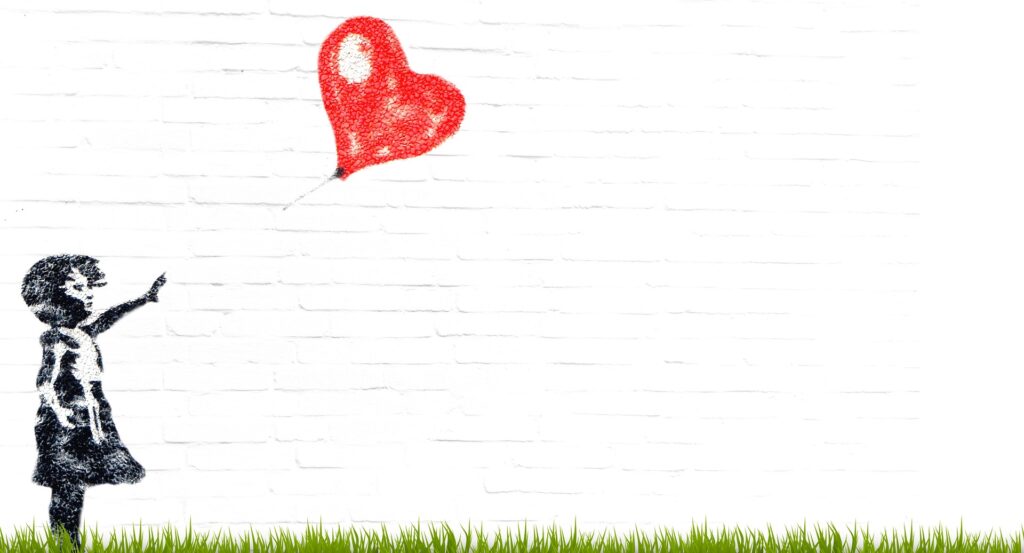Guidance regarding basic Islamic issues – which Hazrat Amirul Momineen, Khalifatul Masih Vaa has given on various occasions in his written correspondence and during MTA programmes – is being officially published below for everyone’s benefit
Men wearing yellow
Someone wrote to Hazrat Amirul Momineen, Khalifatul Masih Vaa that according to the instruction of the Holy Prophetsa, men were not allowed to wear yellow clothes. However, there were some traditions about Hazrat Uthmanra which indicated that he used to wear this colour. The person then asked how the two things could be reconciled.
In a letter dated 24 May 2021, Huzooraa provided the following reply to this question:
“According to the books of hadith, the Holy Prophetsa forbade men from wearing clothes dyed with mu‘asfar [safflower], wars [a dye plant] or za‘faran [saffron] (which usually produced yellow, red or similar colours) as well as [clothes made of] pure silk or qassiy (another type of silk). (Sahih Muslim, Kitabu l-libasi wa z-zinah, bab an-nahyu ‘an lubsi r-rajuli th-thawba l-mu‘asfar & Sahih Bukhari, Kitabu l-marda, bab wujubu ‘iyadati l-marid & Sahih Bukhari, Kitabu l-libasi, bab ath-thawbu l-muza‘far)
“However, asfar and sufrah (which indicates another kind of yellow colour) were used by the Holy Prophetsa himself, his rightly-guided Caliphsand other Companions, may Allah be pleased with them all. Hence, it is narrated in ahadith that the Holy Prophetsa wore a red and yellow robe (hullah hamra’). (Sahih Bukhari, Kitabu l-libasi, bab ath-thawbu l-’ahmar)
“Hazrat Abdullah bin Umarra narrates that he saw the Holy Prophetsa dyeing his (hair and beard) yellow. That is why he also dyed his (hair and beard) with this colour. (Sahih Bukhari, Kitabu l-wudu’i, babu ghasli r-rijlayni fi n-na‘layni wa la yamsahu ’ala n-na‘layn)
“Similarly, when the Holy Prophetsa saw Hazrat Abdur Rahmanra bin Aufwearing yellow, he asked him about it, upon which he replied that there was [a trace of] yellow on him as he had [recently] married. (Sunan al-Nasa’i, Kitabu n-nikah, babu t-tazwiji ‘ala nawatin min dhahab)
“There are many types of colours and they have many shades. A study of the ahadith shows that the Holy Prophetsa forbade a specific type of yellow, which was used by the women in that region at that time. Hence, it is narrated that when the Holy Prophetsa saw Hazrat Abdullahra bin Amr bin al-Aas wearing a reddish-yellow (bi ‘usfurrin muwarrad) garment, he disliked it, upon which Hazrat Abdullahra bin Amr burnt that garment. When the Holy Prophetsa came to know about it, he said that instead of burning it, he could have given it to one of his wives to wear. (Sunan Abi Daud, Kitabu l-libasi, babu fi l-humrah)
“Or it is possible that the disbelievers used to wear that yellow colour. Therefore, the Holy Prophetsa temporarily forbade the Companionsra from using that colour to protect them from imitating the disbelievers (Sahih Muslim, Kitabu l-libasi wa z-zinah, babu n-nahyi ‘an lubsi r-rajuli th-thawba l-mu‘asfar) just as he temporarily forbade them from using certain vessels which were used for distilling wine in that region. (Sahih Bukhari, Kitabu l-iman, babu ‘adai l-khumusi mina l-iman)
“While explaining the colour of the cow of the Children of Israel, mentioned in Surah al-Baqarah, Hazrat Musleh-e-Maudra states:
“‘Some colours bear a resemblance with each other, but different words are used to describe them when we view them from different angles or in different settings. Dark yellow is one such colour. Some observers would call it yellow and others would describe it as red as is the case with saffron. If saffron is placed in front of different people, some would call it red and others yellow.’ (Tafsir-e-Kabir, Vol. 1, pp. 505-506)
“It may also be that garments dyed with mu‘asfar, wars or za‘faran used to be more valuable and, like in the case of silk garments, they were considered a symbol of pride and vanity in that age. Therefore, in view of the tarbiyat of his Companionsra, the Holy Prophetsa may have forbidden the use of such precious garments in order to attract them to the blessings of the Hereafter instead of worldly pleasures and to instil humility and meekness in them instead of pride. In contrast, he may have permitted the use of plain yellow colour or the use of plain yellow clothing which does not result in an inclination towards these evils and these worldly luxuries.
“This is the reason why the noble Companions, the tabi‘in, and the scholars and jurists who followed them differ regarding the use of this colour for men. The majority, including Hazrat Abu Hanifahrh, Hazrat Imam Malikrh and Hazrat Imam Shafi‘irh, have justified its use, while some have called it makruh tanzihi (i.e. an action, the prohibition of which is not stressed upon or as a result of abstaining from which one earns reward [thawab] and performing which does not incur any punishment).
“Thus, Hazrat Uthmanra never used the particular yellow colour or a shade thereof which the Holy Prophetsa forbade Muslims from using; rather, it was that yellow colour that the Holy Prophetsa as well as his Companionsra used. Therefore, the words asfar and sufrah have been used in these traditions for the colour of Hazrat Uthman’sra garments, not the words mu‘asfar or za‘faran.”

Bad omens
A lady mentioned the interpretation done by the Promised Messiahas of the first part of the following hadith of the Holy Prophetsa to Hazrat Amirul Momineen, Khalifatul Masih Vaa:
لاَ عَدْوَى وَلاَ طِيَرَةَ،إِنَّمَا الشُّؤْمُ فِي ثَلاَثٍ فِي الْفَرَسِ، وَالْمَرْأَةِ، وَالدَّارِ
She then requested Huzooraa for an explanation of the second part of this hadith according to which “Misfortune or bad omen lies only in three things: a horse, a woman, a house”, as people raised objections against it.
Hazrat Amirul Momineen, Khalifatul Masih Vaa, in his letter dated 29 May 2021, provided the following guidance on this issue:
“Hadith commentators have interpreted this hadith in various ways:
“For instance, Ibn Arabirh says that the things that have been specified in this hadith as being ominous, are not so by virtue of their intrinsic nature; rather, they are so due to their habits or circumstances. Moreover, it has also been said by some that if a bad omen is possible, then it can be in these three things.
“Similarly, it has been suggested by some that a woman’s not bearing any children, a horse’s not being used in war and a house’s having a bad neighbour are ominous aspects of those things.
“Ibn Qutaybah, on the other hand, states that it was during the jahiliyyah, the period of ignorance preceding the advent of Islam, that people believed in evil omens. So, the Holy Prophetsa forbade [them from auguring based on] them and told them that evil omens were a myth. Nevertheless, they continued to hold on to the belief in the existence of evil omens in these three things. (Fath al-Bari fi Sharh Sahih al-Bukhari, Kitabu l-jihadi wa s-siyari, babu ma uzkaru min shu’mi l-faras)
“Some have also said that the Holy Prophetsa did not state his own point-of-view in this hadith but the belief of the people of that time. This interpretation is also supported by a narration of Hazrat Aishara according to which, when she was informed that Hazrat Abu Hurairahra had narrated that the Holy Prophetsa had said that there were evil omens in horses, women and houses, she became extremely angry and said that the Holy Prophetsa had never said any such thing; rather, the Holy Prophetsa had said that the people of jahiliyyah considered these three things to be the cause of misfortune. (Musnad Ahmad ibn Hanbal, Kitab baqi musnad al-ansar, bab baqi al-musnad al-sabiq, hadith no. 24841)
“And according to another narration, Hazrat Aishara denied the statement of Hazrat Abu Hurairahra and said that Hazrat Abu Hurairahra had only heard the last part of the Holy Prophet’ssa statement and not the first part. She went on to say that the Holy Prophetsa had in fact said, ‘May Allah destroy those Jews who say that there are evil omens in these three things.’ (Musnad Abi Dawud Al Tayalisi, Kitabu ‘ahadithi n-nisa’i, babu ’alqamata ibn qays ’an ‘Aisha)
“Some have in fact interpreted this hadith to mean that it refutes the misconception of the time of jahiliyyah about bad omens and indicates that if one’s house is such that he dislikes living in it, or if one’s wife is such that he dislikes her company or if one’s horse is such that he dislikes riding on it, then he should separate himself from these things. Yet others have suggested that a violent horse, a wife who is unfaithful to her husband, and a house that is far from the mosque where the call to prayer is not heard are ill-omened. (Fath al-Bari fi Sharh Sahih al-Bukhari, Kitabu l-jihadi wa s-siyari, babu ma uzkaru min shu’mi l-faras)
“Anyhow, these are the various interpretations that the commentators have done according to their own understanding. However, if one ponders over this hadith while keeping the teachings contained in the Holy Quran and the hadith in mind, then this hadith can absolutely not be interpreted to mean that a woman, a horse or a house could be bad omens. This is so because the Holy Prophetsa liked all of these three things and praised them. Houses, as well as horses, were used by the Holy Prophetsa while he also had a very close relationship with the women in his life; his mother, wives and daughters. Hence, the Holy Prophetsa said about mothers that Paradise was under their feet. (Sunan al-Nasa’i, Kitabu l-jihad, babu r-rukhsati fi t-takhallufi li mun lahu walidah)
“He said that a pious wife was the greatest blessing of this world. (Sahih Muslim, Kitabu r-rada’, babu khayri mata’i d-dunya al-mar’atu s-salihah)
“He declared the good moral training and education of a daughter [by her guardians] to be a means of their entering Heaven and salvation from Hell. (Sahih Muslim, Kitabu l-birri wa s-silati wa l-adab, babu fadli l-ihsani ila l-banat)
“He declared the husband who treated his wife well the best of men. (Sunan al-Tirmidhi, Kitabu r-rada’, babu ma ja’a fi haqqi l-mar’ati ’ala zawjiha)
“And of the things of this world, he said, he loved women and perfume. (Sunan al-Nasa’i, Kitabu ’ishrati n-nisa’i, babu hubbi n-nisa’i)
“Similarly, the Holy Quran has described horses as a source of beauty for human beings (Surah al-Nahl, Ch.16: V.9). It describes the expression of Prophet Solomon’sas extraordinary love for horses as resulting in his remembering God. [He said, ‘The love of horses is dear to me because they remind me of my Lord.’] (Surah Saad, Ch.38: V.33-34)
“Moreover, while referring to the extraordinary significance of horses, the Holy Prophetsa said that all kinds of good and blessings had been placed in the foreheads of horses till the Day of Resurrection. (Sahih Bukhari, Kitabu l-juhadi wa s-siyar, babu l-khayli ma‘qudun fu nawasiha l-khayru ila yawmi l-qiyamah)
“Regarding houses, the Holy Prophetsa declared the houses of Banu Najjar, Banu Abd al-Ashhal, Banu Harith and Banu Sa‘idah to be the best houses of the Ansar. (Sahih Bukhari, Kitabu l-manaqib, babu fadli duri l-ansar)
“Then it is also mentioned in hadith literature that if one buys a new house, a new mount [i.e. vehicle] or welcomes a new bride, one should give charity. This is so that Allah may protect one from any evil aspects of these things and one may be blessed through them.
“Thus, the fact that the Holy Quran and the Holy Prophetsa have declared these things to be praiseworthy in this way, proves that the above-mentioned hadith cannot be interpreted or understood in any way that would make it objectionable.
“Apart from all these matters, the essential principle to understand this hadith is that which the Promised Messiahas, the Hakam ‘Adl of this Age, has stated in his work Nur-ul-Haqq, while interpreting [ta’wil] the first part of this hadith (which you have also quoted in your letter). He states, ‘All the effects of contagious diseases [‘adwa] etc. are in the hands of God Almighty and no one is able to affect anything in this circular world of generation and corruption except His command, intention and will.’ (Nur-ul-Quran, Ruhani Khazain, Vol. VIII, p. 15)
“That is, the good and bad effects of everything in the world are in the hands of God Almighty, and nothing can affect anything positively or negatively without God’s command and will.

“Therefore, according to this interpretation of Huzooras, the next part of the hadith under discussion will also mean that whether it is a woman, a mount or a home, the good or bad effects of all these things can only influence another person by the permission of God Almighty. In other words, we can say that a man benefits or receives harm from his wife, his mount or his house only according to the will of God Almighty.
“Nevertheless, it is also worthwhile keeping in mind that this should not create the misconception that God was solely responsible for everything that happened, without man having to bear any responsibility for the good or bad outcome of his actions. It has been very clearly elucidated from various angles in the Holy Quran, the hadith and the discourse of the Promised Messiahas, that Allah Almighty produces the outcome according to Man’s own deeds. Hence, while addressing the believers in Surah al-Taghabun, He states: ‘Surely among your [spouses] and your children are [some that are really] your enemies.’ (Surah al-Taghabun, Ch.64: V.15-16)
“Then, in Surah al-Nur, it is said that bad (women) are for bad men, and bad men are for bad (women). And good (women) are for good men, and good men are for good (women) … (Surah al-Nur, Ch.24: V.27)
“It is also mentioned in a hadith that a pious wife, a good house and a good mount are the cause of happiness and good fortune for a person and an evil wife, a bad house and a bad mount are the cause of misfortune for a person. (Musnad Ahmad ibn Hanbal, Musnadu l-‘asharati l-mubash-sharina bi l-jannah, musnad abi ishaqa sa‘ad ibn ‘abi waqqasinra, hadith no. 1368)
“The Promised Messiahas states in this regard:
“‘[E]very human action is followed by a corresponding action on the part of God. For instance, when a person closes all the doors and windows of his room, his action is followed by a divine action whereby the room becomes dark. All the inevitable consequences of our actions that have been appointed by God Almighty under the law of nature are all God’s actions, inasmuch as He is the Cause of causes. For instance, if a person swallows poison, his action would be followed by the divine action that he would suffer death. In the same way, if a person acts in some improper way which attracts an infectious disease, his action would be followed by the divine action that he would be afflicted with that disease. Thus, as we observe clearly that in our worldly life, there is an inevitable result for every action of ours, and that result is the act of God Almighty, the same law operates in religious matters also. For instance, it is said:
الَّذِيۡنَ جَاهَدُوۡا فِيۡنَا لَنَهۡدِيَنَّهُمۡ سُبُلَنَا ؕ
“‘[“… (as for) those who strive in Our path – We will surely guide them in Our ways.” (Surah al-Ankabut, Ch.29: V.70)]
فَلَمَّا زَاغُوۡۤا اَزَاغَ اللّٰهُ قُلُوۡبَهُمۡ ؕ
“‘[“So when they deviated (from the right course), Allah caused their hearts to deviate.” (Surah al-Saff, Ch.61: V.6)]
“‘This means that in consequence of the full striving of a person in seeking God, the inevitable act of God is to guide him along the ways that lead to Him. [In] contrast, it is said: When they deviated from the right course and did not desire to tread along the straight path, the divine action followed in that their hearts were made perverse.’ [The Philosophy of the Teachings of Islam (English), (Tilford: Islam International Publications Ltd., 2017), pp. 120-121]”
Reconciliation after the third divorce (talaq)

Someone asked Hazrat Amirul Momineen, Khalifatul Masih Vaa about remarrying the same woman after having issued three divorces [talaq] to her.
Huzooraa, in a letter dated 8 June 2021, issued the following instruction in this regard:
“In this matter, I have already provided you with an answer from an Islamic standpoint, based on the apparent fact that you issued three divorces [talaq] as you have admitted yourself. That answer was given to you in light of the commentary of the verse:
اَلطَّلَاقُ مَرَّتٰنِ
“[Such divorce may be (pronounced) twice. (Surah al-Baqarah, Ch.2: V.230)] mentioned in Tafsir-e-Saghir and Tafsir-e-Kabir by Hazrat Musleh-e-Maudra. According to that, you have divorced your wife irrevocably [al-talaq al-battah].
“Thus, if your ex-wife’s parents are looking for someone else’s hand for their daughter, let them do it because in their view you have divorced their daughter irrevocably, regardless of whatever explanation you give for your actions.
“If you think that you divorced your wife in a state of insanity and you were not conscious at that time, then decide what you think is best for you, but if you make a mistake, then you alone shall bear the burden of your sin.”
(Compiled by Zaheer Ahmad Khan, Head of Records Department, Private Secretariat, London. Translated by Al Hakam)

